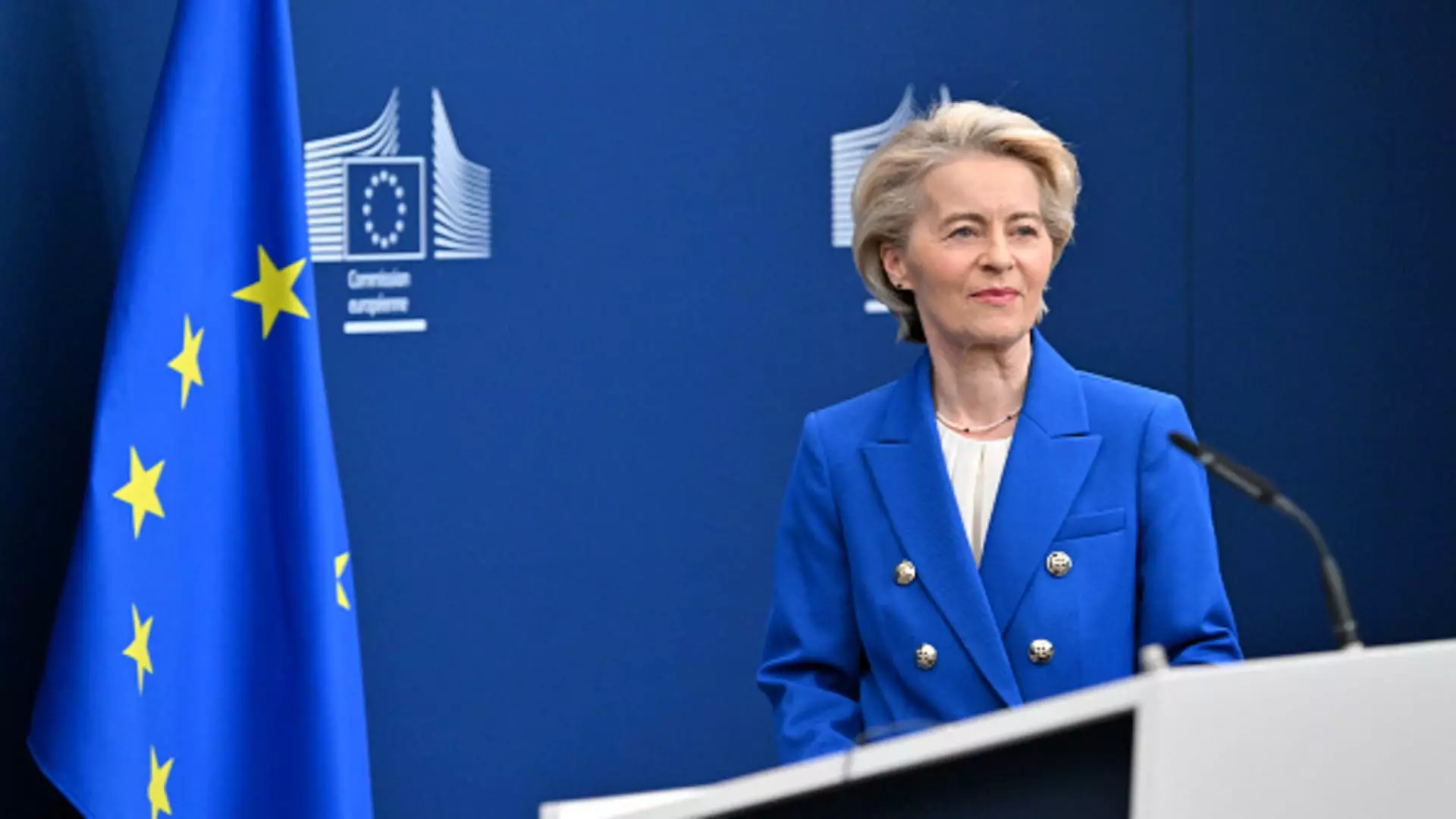The latest proposal from the European Union to mobilize a staggering 800 billion euros for defense spending marks a pivotal moment in European politics and security. Announced by European Commission President Ursula von der Leyen, this ambitious plan signals a radical departure from Europe’s traditionally passive military stance. However, as Europe braces for what von der Leyen describes as its “era of rearmament,” one must consider not just the financial implications, but the ethical and geopolitical ramifications of such aggressive military investment.
This call to arms is not merely a reaction to immediate threats, such as Russian aggression in Ukraine; it aims to create a sustainable defense strategy that positions Europe as a self-sufficient global player. Yet, the eagerness to ramp up spending begs critical questions: Is this truly necessary? Will it unite or further divide the continent?
While the rationale for the ReArm Europe Plan revolves around enhancing security and defensive capabilities, the sheer scale of proposed spending raises eyebrows concerning priorities. Von der Leyen has emphasized the need for an “urgent response,” framing this impetus as essential for European security. But in an age where pressing issues like climate change, healthcare, and social equity require urgent financial commitments, funneling almost a trillion euros towards military reinforcement feels alarmingly disproportionate.
Investing in advanced technology, from air and missile defenses to cyber warfare capabilities, can undoubtedly strengthen Europe’s defense posture. However, this deep dive into military expenditure is potentially a diversion from addressing the underlying crises threatening societal cohesion—like poverty and migration—which often breed insecurity more effectively than military might. Invoking the need for “pan-European capabilities” sounds compelling; yet, it risks becoming a blanket justification for an arms race that exacerbates global tensions rather than mitigates them.
Balancing Debt and Defense
The proposal notably includes a mechanism for member states to utilize up to 150 billion euros in loans backed by the EU budget, enabling them to access funds for military enhancement without straining their national finances. While this may seem like a clever workaround, it raises serious concerns about fiscal responsibility. Are we creating a precedent where state resources are primarily allocated for defense at the expense of social and public welfare programs?
The stress here lies not only in the potential financial burden this places on European economies but also in its socio-political ramifications. The Stability and Growth Pact, traditionally aimed at maintaining fiscal discipline, is now being bent to accommodate national defense spending. It presents a dangerous paradox: while seeking security, Europe may inadvertently destabilize its economic stability by increasing public debt.
The geopolitical implications of the ReArm Europe Plan cannot be overstated. The specter of Donald Trump’s rhetoric urging NATO allies to inflate their military expenditure looms over this initiative, challenging European autonomy and international relations. Trump’s insistence on a sharp rise in defense spending among EU nations reflects not a nuanced understanding of European dynamics but more an echo of America’s own strategic interests.
In this context, the ReArm Europe initiative risks being construed as a response not solely to its own security needs but also as a maneuver to placate external influences. The idea that Europe should arm itself more heavily is tantamount to endorsing a conflict-driven foreign policy that prioritizes militaristic solutions over diplomatic engagements.
The greatest irony here is that true security cannot be found in stashed missiles and budgets but rather through the cultivation of social resilience and international cooperation. Instead of funneling European resources into expansive military projects, Europe could invest more effectively in conflict resolution, humanitarian aid, and diplomacy—all fundamental aspects of human security.
Furthermore, with motives cloaked in national security, the risk of creating a militarized Europe looms larger than ever. Wouldn’t a focus on inclusive policies, addressing inequalities and fostering dialogues with potential adversaries, yield a more stable, peaceful continent? By channeling funds toward social programs and preventive diplomacy, Europe could build a genuinely secure environment that doesn’t merely prepare for war but actively seeks to avoid it.
Ultimately, the question arises: Are we ready to spend 800 billion euros on bolstering armed forces, or is it time to re-evaluate our priorities and seek a unified approach to global stability that emphasizes protection through understanding rather than aggression?


Leave a Reply